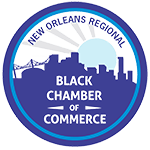Small Business – The legal definition of a small business is determined by the U.S. Small Business Administration (SBA). Title 13, Part 121 of the Code of Federal Regulations sets forth in detail the criteria to be used by the SBA in making small business determinations. Examples of these criteria include the number of workers employed by a business, annual receipts, size standards on an industry-by-industry basis and the nature of the any relationships with affiliates.
Women Business Enterprise (WBE) – At least 51% of this business (or at least 51% of the stock) is owned by one or more women; and the daily business is controlled by one or more women.
Minority Business Enterprise (MBE) – At least 51% of this business (or at least 51% of the stock) is owned, operated and controlled by one or more United States citizens who are members of the following racial groups: African-American, Asian-American, Hispanic-American and Native-American, Asian-Pacific American.
Disadvantage Business Enterprise (DBE) – A firm must be a small business owned and controlled by socially- and economically-disadvantaged individuals. Certifiers make the determinations based upon on-site visits, personal interviews, reviews of licenses, stock ownership, equipment, bonding capacity, work completed, resume of principal owners and financial capacity.
Veteran-owned Small Business (VOSB) – At least 51% of the business must be owned (or 51% of the stock) by one or more veterans, and the daily business operations of the business are controlled by one or more veterans.
Service-Disabled Veteran-owned Small Business (SDVOSB) – A SDVOSB must be at least 51 % owned or controlled by one or more American Veteran(s) with service-connected physical or mental impairments.
HubZone Small Business – A HubZone Small Business must be located in a "historically underutilized business zone" or HUBZone and be owned and controlled by one or more US citizens; additionally at least 35% of its employees must reside in a HUBZone.
8(a) Small Business – A small business that is at least 51% owned and controlled by a socially- and economically-disadvantaged individual or individuals who are of good character and citizens of the United States. The individual's net worth, after excluding the individual's equity in the firm and the equity in the primary residence, may not exceed $250,000.
